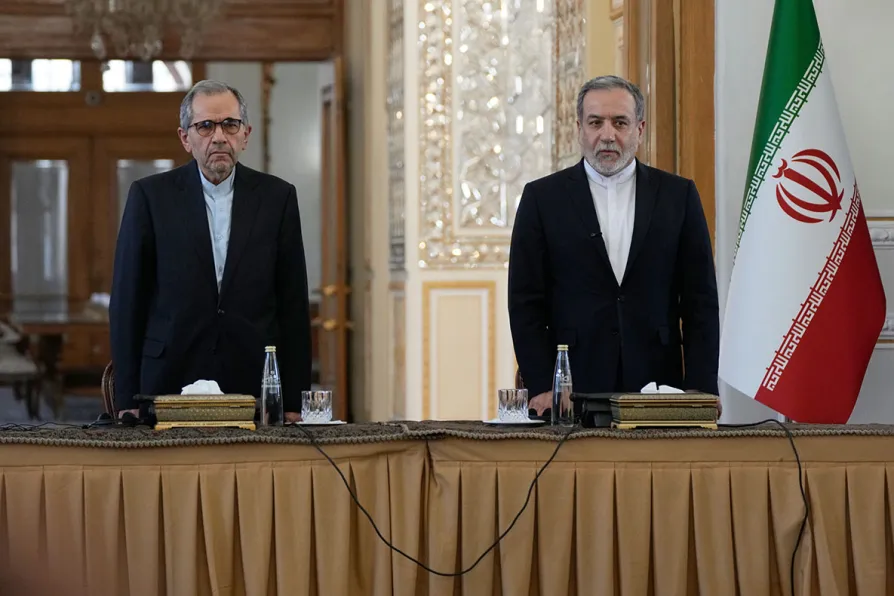
 Iranian Foreign Minister Abbas Araghchi (right) and Deputy Foreign Minister Majid Takht-e-Ravanchi, Iran's top nuclear negotiators, in Tehran, Iran, October 5, 2025
Iranian Foreign Minister Abbas Araghchi (right) and Deputy Foreign Minister Majid Takht-e-Ravanchi, Iran's top nuclear negotiators, in Tehran, Iran, October 5, 2025
THE United Nations watchdog is “no longer relevant” after Western countries reinstated international sanctions on the country, Iran’s top diplomat said on Sunday.
Iran’s Foreign Minister Abbas Araghchi said: “The Cairo agreement is no longer relevant for our co-operation with the International Atomic Energy Agency,” referring to a deal signed last month with the IAEA.
That agreement set out a framework for renewed inspections and monitoring after Tehran suspended co-operation following Israeli and United States attacks on its nuclear facilities in June.
But the deal lost significance after Britain, France and Germany — all signatories to the 2015 nuclear treaty — sparked the return of United Nations sanctions, accusing Iran of breaching its commitments, claims which Tehran has rejected.
Mr Araghchi told a group of foreign diplomats in Tehran: “The three European countries thought they had leverage in their hands, threatening to implement a snapback.
“Now they have used this lever and seen the results. The three European countries have definitely diminished their role and almost eliminated the justification for negotiations with them.”
He added that the so-called E3 “will have a much smaller role than in the past” in any future talks over Iran’s nuclear programme.
The Iranians have accused the IAEA of double standards, saying the agency failed to condemn Israeli strikes on Iranian nuclear sites despite its obligations under the Nuclear Non-Proliferation Treaty (NPT).
Tehran also accused the IAEA of passing on intelligence to Israel that was used to target and kill scientists and academics involved in the country’s nuclear programme.
US-led Western nations, goaded by Israel, have long accused Iran of seeking nuclear weapons.
Tehran strongly denies the allegation and insists its programme is purely civilian and that it has the right to enrich uranium under the NPT.
Some Iranian lawmakers have suggested withdrawing from the NPT altogether, though President Masoud Pezeshkian has maintained that Iran will remain committed to its treaty obligations.
Mr Araghchi said Tehran’s “decision regarding co-operation with the agency will be announced,” without elaborating, but noted that “there is still room for diplomacy.”
Talks between Iran and the US that began in April to revive a broader nuclear agreement collapsed after Israeli attacks in June targeted Iranian nuclear, military and residential sites.
The Iranians have accused Washington of sabotaging diplomacy and demanded guarantees and recognition of its rights before any potential resumption of negotiations.
Iran has repeatedly denied seeking a nuclear weapon, while Israel is widely believed to possess an undeclared nuclear arsenal of dozens of atomic bombs.










